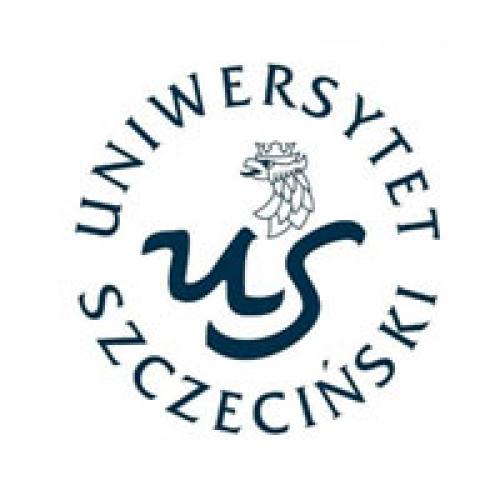4th International Summer School Prague – Szczecin 2015: Jews in East Central Europe: History and Commemoration

“Jews in East Central Europe: History and Commemoration” is the 4th International Summer School organized jointly by the University of Szczecin and Charles University Prague. The summer school is supported by the “Go East” Program of the German Academic Exchange Service (DAAD) and by the Czech-German Future Fund and will be held in cooperation with the Center for Interdisciplinary Polish Studies at the European University Viadrina in Frankfurt (Oder).
Jewish culture and history has constituted a core element of East Central European history since the Middle Ages. In recent years these topics have seen steadily rising public interest in the Czech Republic and Poland. The most visible sign of this is the new Museum of the History of Polish Jews (POLIN), which opened in 2014 in Warsaw. In light of the Holocaust and Jewish emigration during the Cold War, this recent renaissance has been supported to a large degree by non-Jewish circles that are interested in the preservation and commemoration of the Jewish culture and past. However, since 1989 there has also been a notable return of Jewish life to Central Europe. Against this background, the question arises of how the losses through the extinction of East Central Europe’s Jewry are perceived. Furthermore, since the controversy about the murder of the Jewish population of Jedwabne there has been a large debate in Poland about the responsibility of their Christian neighbors. This discussion was also fueled by the fact that the surviving Jews fell victim to pogroms and anti-Semitic attitudes even after 1945.
In this regard, debates about the collective commemoration of Jews in East Central Europe since the 1980s are not only an important issue of historical and cultural studies, but also an eminent political one that has been the subject of controversial discussions both internal and transnational. Among the issues to be addressed during the summer school 2015 are:
-
The incorporation of Jews into national cultures and discourses on history, because their contributions were often overlooked or only partially perceived.
-
The fact that Jews since the 19th century often found themselves between conflicting national cultures and were subject to competing demands of assimilation.
-
The harsh controversies which emerged from accusations of Jews as alleged agents of Bolshevism and supporters of socialist state regimes.
-
A specific problem arises from the commemoration of Jewish life in former German towns and cities in Western and Northern Poland, but also in the Sudeten German regions of Czechoslovakia. In these regions, the Jewish populations – despite their persecution by the Nazis – were regarded as part of the German history and have therefore largely fallen into oblivion since 1945. Conversely, they were also widely excluded from German commemoration.
The International Summer School “Jews in East Central Europe: History and Commemoration" will be held in Prague, Warszawa, and Szczecin.
Prague is one of the most eminent centers of Jewish life in Central Europe. It was also the place of a transcultural literary production with Jewish writers in its center. These Czech-German-Jewish entanglements have recently been addressed in new cultural studies.
Warsaw has not only become the center of collective remembrance of the Polish Jews with its new museum, but there are also important institutions dealing with Jewish history and cultures of remembrance. As Warsaw is also the center of the musealization of Polish history, the relationship between national and Jewish history there shall be discussed and analyzed.
Szczecin holds a special historical position for two reasons: It was the first large city in Germany from which Jewish inhabitants were deported in 1940, and for some years after 1945 the city saw a wave of immigration of Jewish survivors of the Holocaust from Eastern Europe.
The Summer School will consist of four sections: First, in Prague the participants will be given an overview of Jewish history in East Central Europe. In the second portion, the collective commemoration of Jews in Poland will be discussed in Warsaw. During the third part of the summer school in Szczecin we will compile a documentation of Jewish life in the city. Finally, after the presentation of the results, the concluding discussion shall focus on a comparison between Poland and Czechoslovakia / the Czech Republic and will also refer to debates on Jewish history in Germany.
The International Summer School "Jews in East Central Europe: History and Commemoration" is aimed at MA and PhD students of the humanities and social sciences from the Czech Republic, Germany, Poland, and beyond. The summer school will discuss the recent relevance of remembering and researching Jewish history and culture in East Central Europe. The case of Szczecin will be used to focus on the transnational dimension of Jewish history. Students will analyze and discuss central issues and current debates of Jewish culture and history in talks and panel discussions with prominent subject-matter experts (historians, scholars of culture, social scientists), and also by preparing their own presentations. The program includes on-site visits and excursions to sites of Jewish life and commemoration. Participants of the summer school will gain ECTS credit points for the successful completion of an essay.
The Summer School will be held in English.
Requirements:
Application with a one-page letter of motivation, CV, application form, and recommendation by a university instructor.
Czech, Polish, or Yiddish language knowledge is appreciated, but not required.
Participation fee: 650 EUR for participants from Germany and other countries, except for countries in East Central and Eastern Europe (please contact the organizers for more information about participation fees).
Contacts:
Joerg Hackmann
DAAD Alfred Doeblin Professor of East European History
University of Szczecin
Dept. of History and International Relations
ul. Krakowska 71-79
71-017 Szczecin
POLAND
ph +48.91.4443319
Torsten Lorenz
DAAD Docent of History
Institute of Economic and Social History
Faculty of Philosophy
Charles University
nám. J. Palacha 2
116 38 Prague 1
CZECH REPUBLIC
Email: joerg.hackmann@univ.szczecin.pl
Visit the website at http://www.joerghackmann.eu/summer_school.html